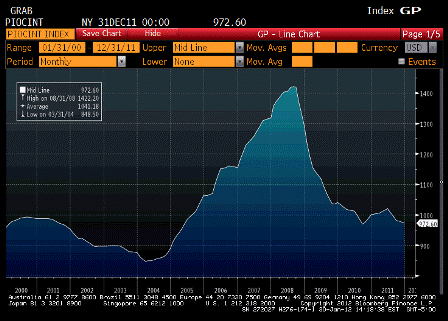With the aggressive fx policies of former Treasury Secretary Paulson fading, the Swiss not being tongue lashed as a currency manipulator and international outlaw for selling their currency, and the euro member nations seeking all the ‘help’ they can get:
I’m watching for other nations seeking export led growth, like Japan, resuming prior policies of keeping their real wages ‘competitive’ by buying the currencies of their target markets.
Japan’s Fin Min Azumi To Take Decisive Forex Steps If Needed
Jan 25 (Dow Jones) — Japan’s finance minister issued a fresh warning Tuesday that he will take “decisive steps” if speculators push the yen up too sharply, after the Japanese currency rose to its strongest level in around three months overnight.
“There is no change in my stance” on foreign exchange issues, Jun Azumi said at a news conference after a regular Cabinet meeting. “If there is excessive volatility or really speculative movement, I will be vigilant against it, and I will take decisive steps if necessary.”
The phrase “decisive steps” is a Japanese code for currency-market intervention.
But Azumi added that Japan’s economy “isn’t necessarily in a bad shape.” He voiced hopes that Europe’s debt crisis would ease, helping Japanese stock markets stabilize.
The yen briefly surged to Y76.21 Monday, as investors fleeing Europe’s debt crisis took shelter in Japan’s currency despite warnings from Japanese policymakers that yen strength was unwarranted.

